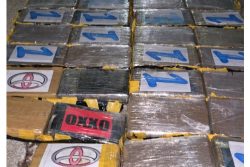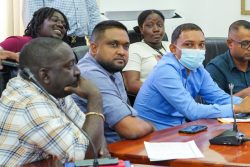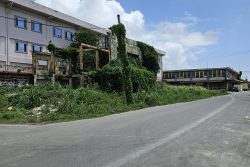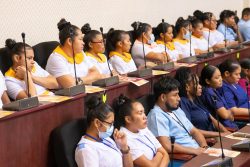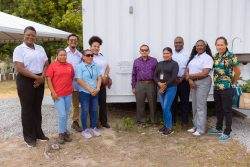The Caribbean could be among the poor regions of the world that could be challenged by the need to increase levels of investment in agriculture in order to meet the food demands that are likely to result from medium to long-term population growth.
Projections contained in a Food and Agricultural Organiza-tion (FAO) Discussion Paper prepared for an October 12-13 High Level Experts Forum on How To Feed The World in 2050 indicate that investments in agriculture by developing countries must increase by about 50 per cent to around US$83 billion annually if there is to be enough food to feed the anticipated 9.1 billion global population in 2050. Of the projected net investments in agriculture Latin America and the Caribbean will have to pump some US$20 billion into the sector if the anticipated food needs of the region are to be met. Overall, the FAO’s latest projections indicate that global agricultural production must increase by 70 per cent over current levels by 2050 in order to feed the estimated additional 2.3 billion people likely to be living on the planet within the next four decades.
The recent High Level Experts Meeting held in Rome saw intense discourses among 300 food and population experts on the nexus between moving increased agricultural production further towards the front burner of the global agenda and responding to the challenge of meeting the world’s food needs in 2050. The forum was convened against the backdrop of a projected global population increase from the current 6.9 billion to a projected 9.1 billion. “Agriculture will have no choice but to be more productive,” FAO Director General Jacques Diouf told the Rome meeting.
The deliberations of the Rome meeting put into perspective the food challenges confronting the Caribbean where last year’s estimated US$3 billion food import bill galvanized Caribbean Community Heads into debate on the need to reduce food imports and to focus more attention on shoring up the region’s agricultural sector. The 2008 regional forum on food security convened in Georgetown witnessed a broad range of discussions on several agriculture-related issues including more private sector investment in agriculture, a more liberal bank lending regime for investment in the sector, regional collaboration in the establishment of mega-farms utilizing Guyana’s vast land resources and increased investment in significantly enhancing the agricultural research investment in the region.
Guyana’s President Bharrat Jagdeo, the designated regional lead spokesperson on agriculture has been the principal advocate of a stronger Caribbean agricultural sector including significantly increased levels of regional and international investment in the sector. President Jagdeo had admitted that the regional response to what is widely believed to be an impending global food crisis has been slow and the alarm bells sounded in Rome at the experts forum will, hopefully, help to galvanize CARICOM states into paying more attention to their respective agricultural sectors.
At the two-day Rome forum, the food and population experts from around the world reviewed and debated the investment needs, technologies and policy measures needed to secure global food supplies by 2050 as well as the likely impact of climate on the attainment of targeted food production levels.
Securing development aid to boost agricultural production is likely to be one of the key challenges that will face developing countries in the period ahead and with an estimated US$44 billion annually in development aid needed for agriculture – as against the US$9 billion currently being expended – developing countries are expected to mount an intense lobby at the November 16-18 World Summit on Food Security for more bilateral and multilateral support for agriculture.
The World Summit is likely to represent another major diplomatic assignment for President Bharrat Jagdeo who is expected to be one of the Heads of State from the FAO’s 192 member countries in attendance. Conceivably, President Jagdeo could use the opportunity of the global food summit both to rally CARICOM behind FAO Director General Jacques Diouf’s advocacy of more private sector investment in agriculture and to further promote his current diplomatic preoccupation, Guyana’s Low Carbon Development Strategy as a mechanism for helping to ensure that the 2050 food production targets are met. According to the FAO discussion paper temperature rises by more than 2 degrees Celsius could severely contract global food production potential resulting in major yield reductions in critical food crops. The decline, the Paper says, is likely to be particularly pronounced in the low-latitude regions of Africa, Asia and Latin America where yields could be reduced by between 20-40 per cent if effective adaptation measures are not taken.
Private sector investment apart, developing countries, including Caribbean territories are likely to be significantly challenged by the requirement that more public funds be allocated to enhancing agricultural output.
The FAO’s Discussion Paper identifies agricultural research and development, large scale infrastructure such as roads, ports and power, extension services and education, particularly of women, sanitation, clean water supply and healthcare as areas into which significantly increased public funds will have to be sunk if the 2050 food production is to be met. “New technologies and improved practices will therefore also be needed to deal with a changing climate as well as rapidly increasing water scarcity,” the paper says.

